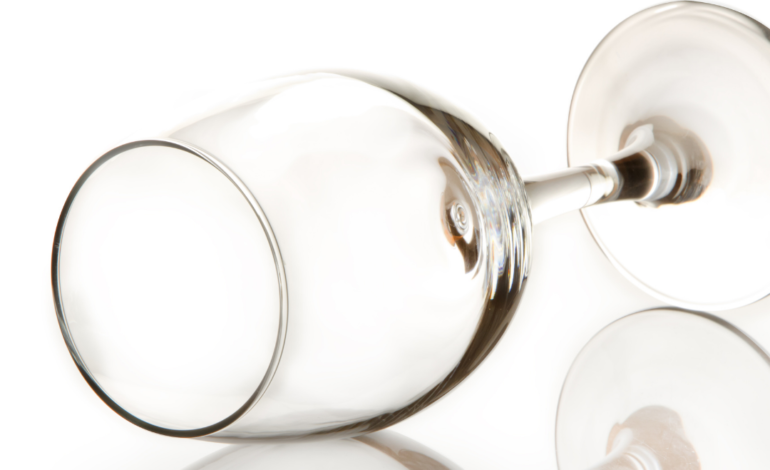Dry January is a public health campaign advocating for people to abstain from consuming alcohol for the entire month of January. It is a semi-recent public health campaign that began around 2014 and is practiced in the United States and Europe. Dry January brings awareness to many people struggling with alcohol misuse without realizing it. Sometimes when individuals choose to partake in Dry January to improve their physical and mental health, they may realize it is much more complicated than they initially imagined. Individuals who have a long history of alcohol misuse may experience alcohol withdrawal when trying to cut back or abstain from drinking during Dry January. Hence, Dry January without the proper support network can be challenging and even dangerous. Even if it is temporary, quitting drinking alone is not always advised.
This Dry January is slightly different from the past many years, specifically because of the recent COVID-19 pandemic. Alcohol consumption has increased dramatically since the onset of the COVID-19 in 2020, and as a result, many more people may be struggling to cut back or abstain from alcohol during this current Dry January. Cutting down or abstaining from alcohol is always a good idea as it can benefit both your physical health and mental health. A study from the BMJ open found that regular drinkers who abstained from alcohol for 30 days slept better, had more energy, and lost weight. They also lowered their blood pressure and cholesterol levels and reduced cancer-related proteins in their blood. Click here to read more about the benefits of cutting back or abstaining from alcohol.
Can you participate in Dry January on your own?
Most individuals who partake in Dry January will do it independently without the help and support of friends and family or an addiction treatment facility. However, deciding whether you should participate in Dry January on your own depends on your alcohol consumption history.
Do you drink nearly every day?
Do you binge drink?
Do you drink as a coping mechanism to deal with unwanted feelings, emotions, or stress?
Do you drink by yourself often?
Have you ever experienced withdrawal symptoms when you tried to cut back your alcohol consumption?
Do you need to drink to get through the day?
Do you blackout from drinking?
Is drinking a significant part of your life?
If you answered yes to any of these questions, it might not be wise to partake in Dry January without the help of a support system or alcohol abuse treatment team.
Don’t stop at Dry January
If you find yourself succeeding during Dry January in terms of cutting back or abstaining from alcohol, try to continue this pattern. If you need a helping hand to navigate this brave and challenging journey, AKUA Mind and Body can help. AKUA Mind and Body is a full-service addiction and mental health treatment center with locations across California. We believe in treating the individual and not just the disorder, and we would be honored to help you along your Dry January journey.
Alcohol withdrawal
The primary reason why cutting back or quitting alcohol consumption on your own is dangerous is the risk of alcohol withdrawal. Alcohol withdrawal can be severe and may even be life-threatening. Symptoms depend on the individual’s history of alcohol consumption, and often symptoms can be unpredictable. Mild alcohol withdrawal symptoms include anxiety, trembling hands, headache, nausea, vomiting, sweating, and insomnia. Severe alcohol withdrawal symptoms usually begin within two or three days after you stop drinking. They can include hallucinations, delirium, racing heart rate, and fever. If you suffer alcohol withdrawal symptoms at any time, you should seek immediate medical help.
Alcohol addiction treatment
When trying to cut back on alcohol consumption or abstaining altogether, enrolling in a professional alcohol addiction treatment program may be wise, especially if you are at risk for withdrawal symptoms. Professional alcohol addiction treatment such as AKUA Mind and Body gives you the tools you need to succeed on your journey to sobriety. Addiction treatment programs provide medications, and behavioral therapy approaches to alleviate signs and symptoms associated with withdrawal and help you with future urges and cravings.
Addiction treatment centers can diagnose and treat any underlying co-occurring mental health disorder such as depression and anxiety that often co-occur with an alcohol use disorder. Frequent or heavy drinking can result in a mental health disorder. Many individuals struggling with a mental health disorder may use alcohol as a coping mechanism to alleviate any unwanted feelings, emotions, and stressors. When you try to abstain from drinking on your own during Dry January, you may find yourself severely struggling because of an undiagnosed co-occurring mental health disorder.
The importance of support groups
Alcohol support groups, whether in person or virtual, can make a tremendous impact on abstaining from alcohol in a positive way. Alcohol support groups, whether through an addiction treatment center or the general public, allow you to connect with other individuals experiencing a similar journey to abstaining from alcohol. Support groups allow you to share your daily journey from the highs and lows while also learning about underlying triggers associated with your alcohol misuse and positive coping skills to help you navigate these challenging times.



